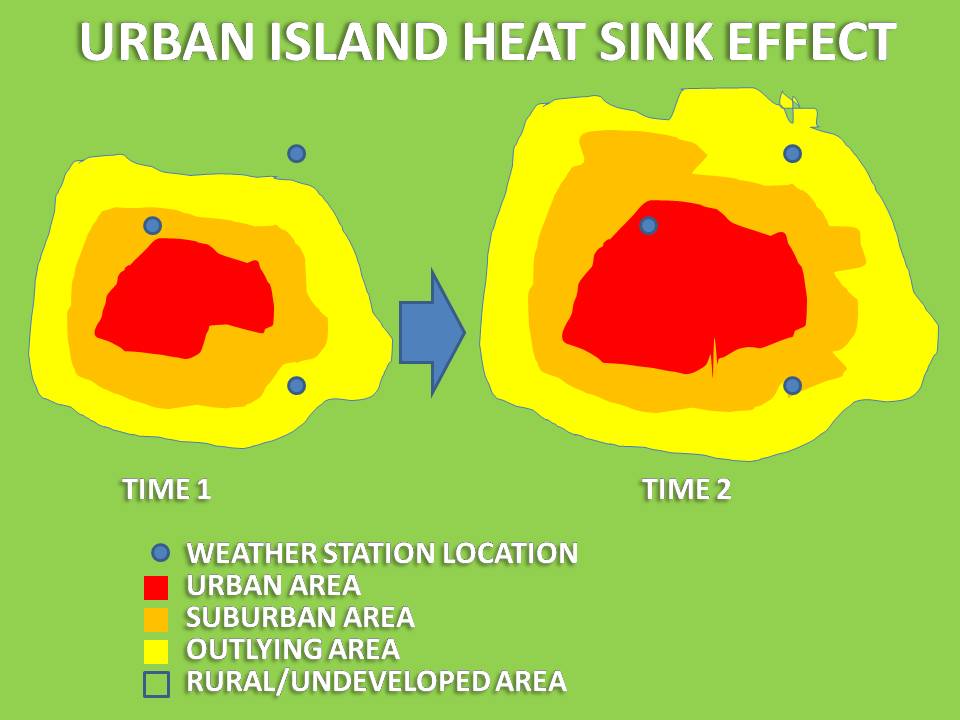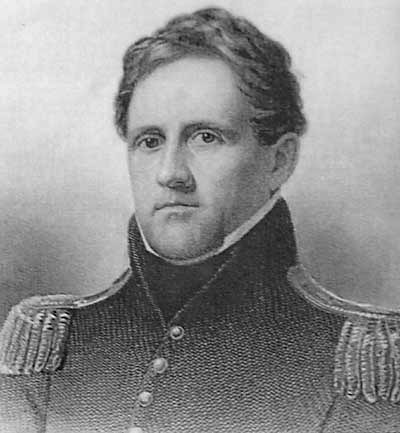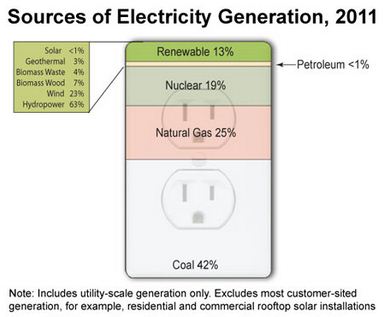SEARCH BLOG: GLOBAL WARMING
Recently there have been some interesting articles that don't question the idea that global warming could be occurring as much as whether the evidence is really there.
For example: Global Warming Down Under highlighted a study of 4 decades of temperature records in South America (when global warming was supposed to be accelerating) and concluded that what was occurring were fewer cold nights as opposed to higher maximum temperatures. The study concluded that there was a connection between changes in ocean temperatures near South America and overnight temperatures, but the continent did not appear to be overheating.
Also: Bad Paint = High Temperature Readings pointed to inconsistencies in the the condition of weather stations over time that can lead to higher recorded temperatures in some cases.
Another change that affects perception of higher temperatures is the urban island heat sink effect. Cities of brick and mortar and concrete and asphalt have the ability to retain heat as well as creating conditions favorable to more heat... such as generating its own heat from human activities. As these urban islands encroach upon weather stations that were previously surrounded by thinly populated areas or rural areas, the new conditions make it likely that higher average temperatures will be recorded... and that fewer cold records will be set in those areas.

When one looks at the South American study cited above and the history of record high and low U.S. temperatures by state (which is in the downloadable Excel file in the right margin), you begin to see a pattern ... at least in the western hemisphere: warmer nights and no increase in the frequency of high temperature records. Dr. Tim Patterson also looked at records from eastern Canada and found that average temperatures were increasing only in the expanding urban areas and were virtually unchanged in the rural/wilderness areas.
So, you draw your own conclusions from the information above. Just remember that the world's human population has been growing significantly and that more people are living in cities and less people are living in agricultural areas... and more weather stations are "living" in those urban areas.
My conclusion is that our
perception of 0.6º C increase in average global temperature over the course of a century is based on curiously inconsistent recording methodologies and biasing conditions that would make the slight change more ethereal than real. Sure, there have been cold periods and warm periods within that century or so... that's the way weather and climate vary over time.
Nevertheless, I'm sure that huge numbers of people are now conditioned by politicians and newspapers and television to see every hot day as evidence of global warming and ignore every very cold day as just a weather anomaly. Yesterday, the temperature was near 90º F and I very much enjoyed a round of golf. Exactly one week prior to that, our same golfing group went out with the temperatures in the 40s and the winds whipping mist around between 20 - 30 mph. We quit after 9 holes; it was miserable.
The average high temperature around here is about 70º F this time of the year. Those two golfing days averaged out to about the average normal high temperature. But the talk today will be how hot it was yesterday;
not how cold it was the week prior. We are now cooling back toward "normal" while everyone waits anxiously for the next "record" high temperatures as evidence that our doom is nigh.
Perception distorted by environmentalist polemic.
..

















